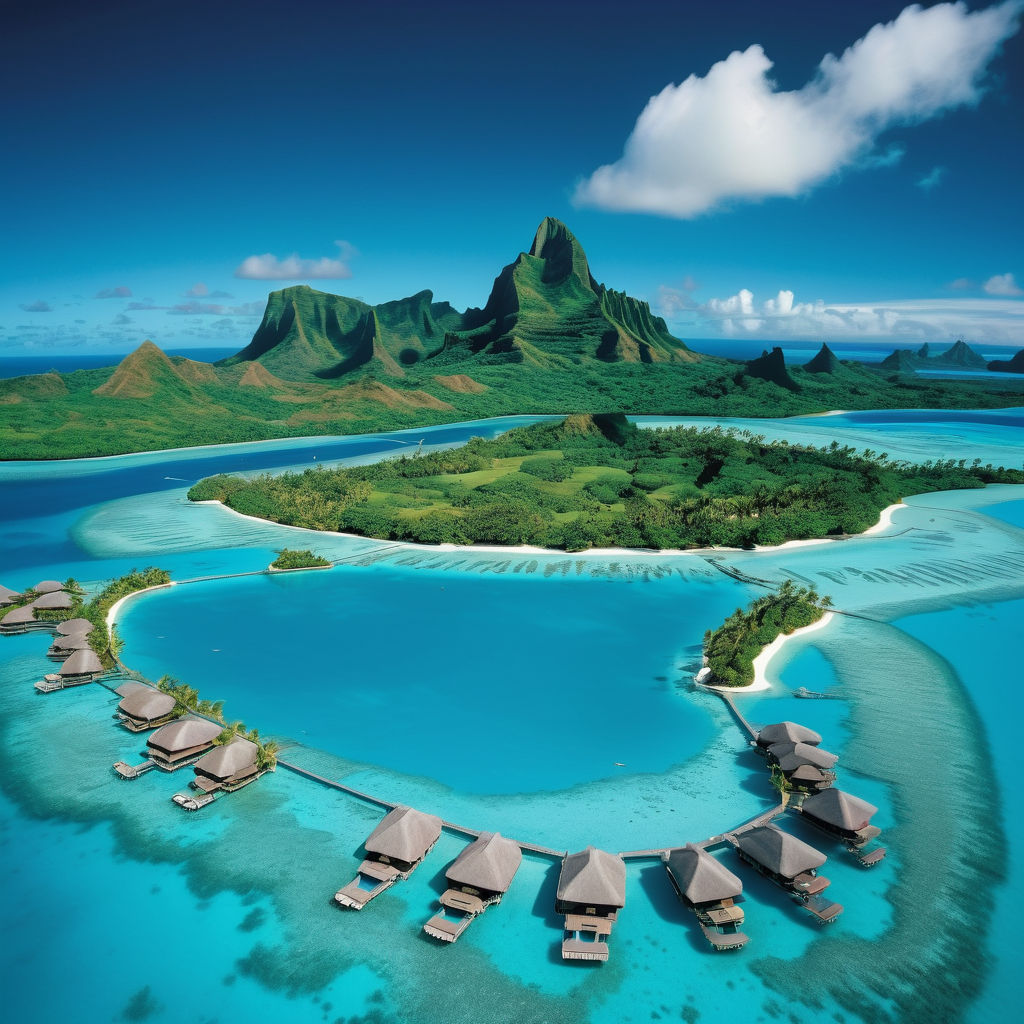Introduction to French Polynesia: A South Pacific Paradise
Discover French Polynesia: Culture, Community, and Cross-cultural Dynamics

Introduction to French Polynesia
French Polynesia is a stunning overseas collectivity of France, located in the South Pacific Ocean. It comprises 118 islands and atolls, grouped into five archipelagos: the Society Islands, the Tuamotu Archipelago, the Gambier Islands, the Marquesas Islands, and the Austral Islands. The capital city, Papeete, is situated on the island of Tahiti in the Society Islands and serves as the political, economic, and cultural hub. Known for its breathtaking landscapes, crystal-clear lagoons, and rich cultural heritage, French Polynesia is a paradise that attracts visitors from around the world. The cultural heritage of French Polynesia is deeply rooted in Polynesian traditions, which are expressed through music, dance, tattoo art, and traditional crafts. The Heiva festival, celebrated annually in July, showcases traditional Polynesian dance and music, bringing communities together to celebrate their cultural identity. This rich cultural tapestry is further enriched by the influences of French colonization, creating a unique blend of Polynesian and European cultures.
Cross-national and Cross-cultural Understanding
The people of French Polynesia, known as Polynesians, generally exhibit a welcoming and open attitude towards other cultures. This openness is fostered by the country’s historical role as a crossroads for various civilizations and its reliance on tourism. Polynesians value cross-cultural understanding and are accustomed to interacting with people from diverse backgrounds. Cultural exchanges are an integral part of life in French Polynesia. The country hosts numerous festivals and events that celebrate both local and international traditions. The Heiva i Tahiti, for example, is not only a celebration of Polynesian culture but also an opportunity for cultural exchange with visitors from around the world. Additionally, the annual International Tourism Fair of Tahiti provides a platform for promoting cross-cultural understanding through tourism. Educational programs in French Polynesia emphasize global awareness and cross-cultural understanding. Schools and universities incorporate multicultural perspectives into their curricula, encouraging students to appreciate and respect diversity. International partnerships with institutions in France, the United States, and other countries facilitate student and faculty exchanges, enriching the educational experience and fostering global connections.
Interactions and Social Dynamics
Typical interactions between Polynesians and foreigners are characterized by warmth, respect, and a strong sense of community. Social behaviors in French Polynesia reflect a blend of traditional Polynesian values and contemporary influences, emphasizing respect for others, hospitality, and communal living. Communication styles in French Polynesia are generally informal and friendly. French and Tahitian are the official languages, with French being widely spoken and used in education and government. The use of Tahitian is encouraged in cultural and familial settings, reflecting the island’s efforts to preserve its indigenous language. This bilingualism facilitates communication and helps bridge cultural gaps between locals and visitors. Cultural norms in French Polynesia place a strong emphasis on respect for elders, community involvement, and a relaxed approach to life. These norms create a welcoming and inclusive atmosphere for foreigners, who often find it easy to integrate into the local way of life. Public displays of affection are generally acceptable, reflecting the country’s relaxed social attitudes.
Views on Dating and Relationships
Attitudes towards dating and relationships with foreigners in French Polynesia are generally positive. Polynesians are open to forming relationships with people from different cultural backgrounds, recognizing the enrichment that such diversity brings to their lives. However, cultural expectations and traditions do play a role in shaping these views. Family involvement is significant in relationships in French Polynesia, with elders often playing a crucial role in the approval process. Traditional customs emphasize respect, patience, and the gradual building of trust in relationships. While modern dating practices influenced by global trends are becoming more common among younger generations, traditional values still hold sway in many communities.
Marriage and Family
Marrying a foreigner in French Polynesia involves navigating both legal and social considerations. Legally, the country follows French regulations governing marriage, including residency requirements and the need for proper documentation. Socially, cross-cultural marriages are generally accepted, though couples may face challenges related to cultural differences and integration. Familial acceptance is a key factor in cross-cultural marriages. Polynesian families can be protective, and gaining their approval is often essential for the relationship's success. However, the diverse cultural landscape of French Polynesia means that many families are already familiar with and accepting of different cultural backgrounds, which can facilitate smoother integration for foreign spouses. Trends in cross-cultural marriages reflect French Polynesia's open and inclusive society. Many Polynesians who travel abroad for education or work form relationships with individuals from various cultures, bringing back diverse customs and traditions that enrich the local community.